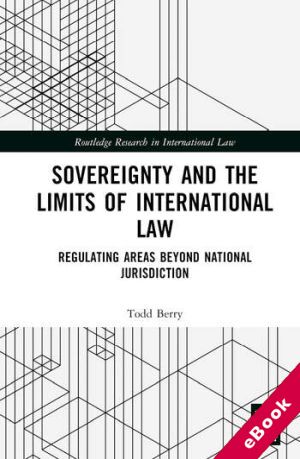
The device(s) you use to access the eBook content must be authorized with an Adobe ID before you download the product otherwise it will fail to register correctly.
For further information see https://www.wildy.com/ebook-formats
Once the order is confirmed an automated e-mail will be sent to you to allow you to download the eBook.
All eBooks are supplied firm sale and cannot be returned. If you believe there is a fault with your eBook then contact us on ebooks@wildy.com and we will help in resolving the issue. This does not affect your statutory rights.
The inspiration for this book comes from negotiations that are taking place under the auspices of the United Nations by an intergovernmental conference for a new International Legally Binding Instrument (ILBI) under the United Nations Convention on the Law of the Sea (UNCLOS) on the conservation and sustainable use of marine biological diversity of Areas Beyond National Jurisdiction (ABNJ). The proposed ILBI is attempting to fill existing gaps under international law over marine biodiversity and marine genetic resources (MGR) in ABNJ. One way it is attempting to do this is by having an Access and Benefit-Sharing (ABS) schema over these resources in ABNJ that the United Nations Convention on Biological Diversity (CBD) and its Nagoya Protocol (NP) do not currently cover. These existing frameworks that regulate genetic resources are grounded in the notion of sovereignty. Effectively, States have sovereign rights over their biological resources. The ILBI, however, is attempting to regulate marine biodiversity and MGR in ABNJ. Thus, the notion that negotiators representing nation States under the auspices of the United Nations can regulate ABNJ is paradoxical – are these areas beyond nation States’ jurisdiction or not? Implicitly, the negotiators are acting as though they have sovereignty over resources located in what has been historically a sovereign-free space. Thus, the purpose of this book is to investigates this paradox. Essentially, this book critiques the notion that ABNJ can actually be regulated under the auspices of the United Nations by nation-State negotiators.